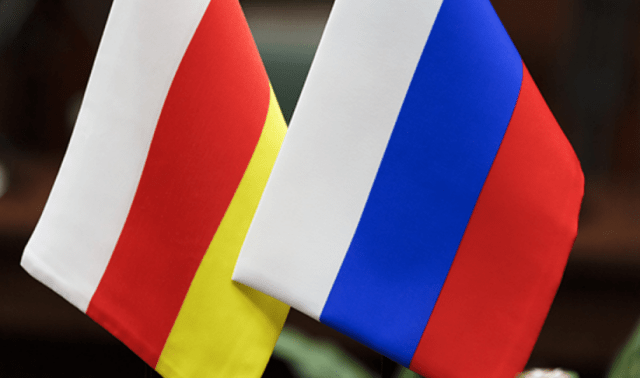Geopolitics of South Ossetia’s possible annexation to Russia

Kavkaz Files ISSN 2975-0474 Volume 10 Issue 1
Author: Giuliano bifolchi
South Ossetia considers the eventuality of joining the Russian Federation through a referendum that will change the geopolitical chessboard of the Caucasus and influence the dynamics between Moscow and Tbilisi.
According to Alan Tadtaev, the Chairman of the South Ossetian Parliament, an initiative group has been formed in South Ossetia to deal with the issue of holding a referendum on joining the Russian Federation. The initiative group will send a corresponding statement to the Central Election Commission suggesting also the candidates of the commissioners whose functions will be documenting the issue and favouring the setting of the date of the referendum.
The chairman of the parliament said that the initiative group included the head of state Anatoly Bibilov, former presidents, deputies of the first convocation, social activists and representatives of ministries and departments.
Tadtaev said that holding a referendum is a matter of the near future. Legal actions are already being carried out, thanks to which it will be possible to begin the procedure for joining the Russian Federation. In conclusion, he noted that joining Russia is an age-old dream of the Ossetian people. Previously, Anatoly Bibilov announced to the media and his electorate that the country was ready for a referendum and to join the Russian Federation shortly.
Bilbilov told the Russian media that:
“I believe that unification with Russia is our strategic goal. This is our path and an aspiration of our people. We should continue along this path. The corresponding legal measures will be made in the near future. The Republic of South Ossetia will become part of its historical homeland – Russia”.
Risk Assessment
After the 2008 Russo-Georgian Conflict, the Kremlin recognised the independence of the Republic of South Ossetia and the Republic of Abkhazia. According to Tbilisi, both Abkhazia and South Ossetia are part of the Georgian sovereign territory. Since 2008, as the Georgian Government has consistently stated, Tbilisi has considered these two de-facto autonomous republics illegally occupied territory by the Russian military forces.
The Georgian Government harshly reacted to South Ossetia’s eventuality might become part of the Russian Federation. Deputy Prime Minister and Foreign Minister of Georgia, David Zalkaliani, denounced the proposed referendum on “unification”, labelling it illegal and unacceptable. According to Tbilisi, the referendum and the possible “unification” would be provocations to widen the ongoing conflict.
Whether South Ossetia will organise a referendum and the local electorate will vote for the unification with the Russian Federation, we might predict different scenarios. First of all, being part of the Russian Federation guarantees South Ossetia complete military protection from a possible Georgian military operation aimed at conquering the territory that Tbilisi considers part of its sovereignty. Since 2008, the Russian Federation has deployed military personnel as peacekeepers to avoid possible Georgian aggression or an escalation of the ‘frozen conflict’. After the referendum and the possible unification, a Georgian military operation against the South Ossetian territory will be an attack on the part of the Russian Federation, causing a conflict between Moscow and Tbilisi and the probable intervention of the Collective Security Treaty Organisation (CSTO).
The referendum and the unification might push Tbilisi even closer to the European Union and the United States (and NATO). Since the Ukraine conflict (read more about the conflict by consulting our project Ukraine Crisis & Conflict), Brussels and Washington have declared that they will not tolerate any further Russian expansion in the post-Soviet space. Considering that Tbilisi’s membership in the Atlantic Alliance is not on the table, the Georgian Government might try harder with the European Union to join this organisation as Moldova did last March.
Regarding the possible annexation, there are still some technical and administrative aspects to consider. One of these relies on the fact that South Ossetia might join Russia as a republic of the Russian Federation or be annexed to the Republic of North Ossetia-Alania territory. Furthermore, considering its position in the Caucasus, South Ossetia might become another territory of the Severnij Kavkaz Federal’nij Okrug (North Caucasus Federal District), where the Kremlin launched a strategy to improve socio-economic development and transform the region into a logistic, commercial and tourist hub linked with the Caspian Sea region, Central Asia, and the Middle East.
In this context, we might also predict an EU and U.S. powerful reaction to the referendum since both Brussels and Washington have always supported Georgian sovereignty integrity and accused the Russian Federation of military occupation of South Ossetia and Abkhazia without accepting Tsinkhval and Sukhum’s requests of self-determination and independence. The reaction might produce further sanctions, European and U.S. investments, and military support for Georgia. Russia-Georgia confrontation over South Ossetia and Brussels and Washington’s support to Tbilisi might exacerbate the situation in the Caucasus, which might explode into another conflict (the famous “second front” that some Ukrainian officials revealed as a tool to weaken the Russian Federation) in a region which recently experienced a border crisis between Nagorno-Karabakh/Artsakh and Azerbaijan.
Do you like SpecialEurasia reports and analyses? Has our groundbreaking research empowered you or your team? Now is your chance to be a part of our mission! Join us in advancing independent reporting and unlocking the secrets of Eurasia’s complex geopolitical landscape. Whether through a one-time contribution or a monthly/yearly donation, your support will fuel our relentless pursuit of knowledge and understanding. Together, let’s pave the way for a brighter future. DONATE NOW and secure your place in shaping the geopolitical narrative.
